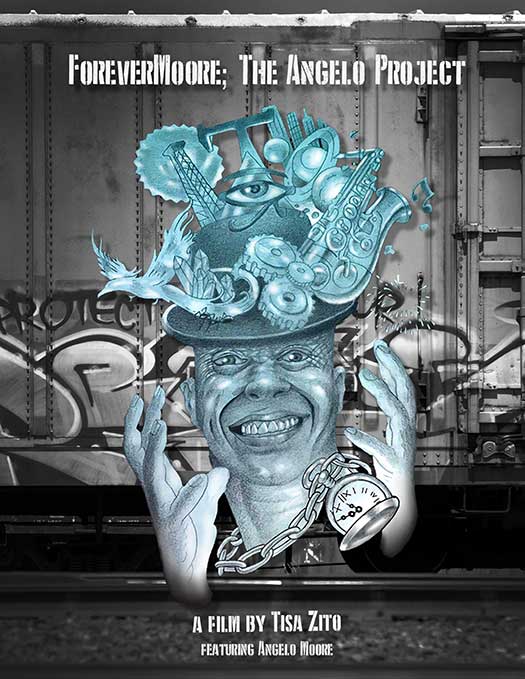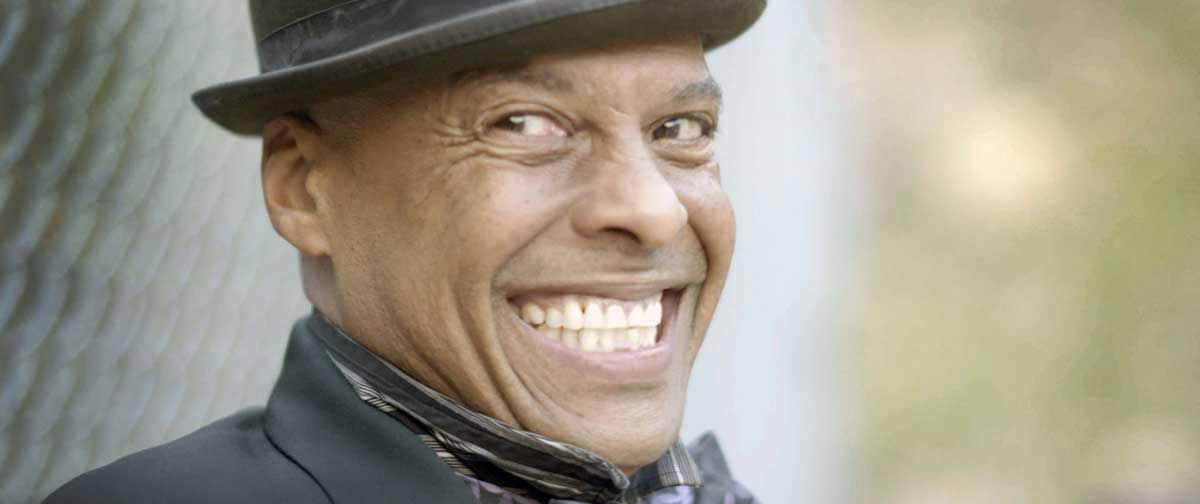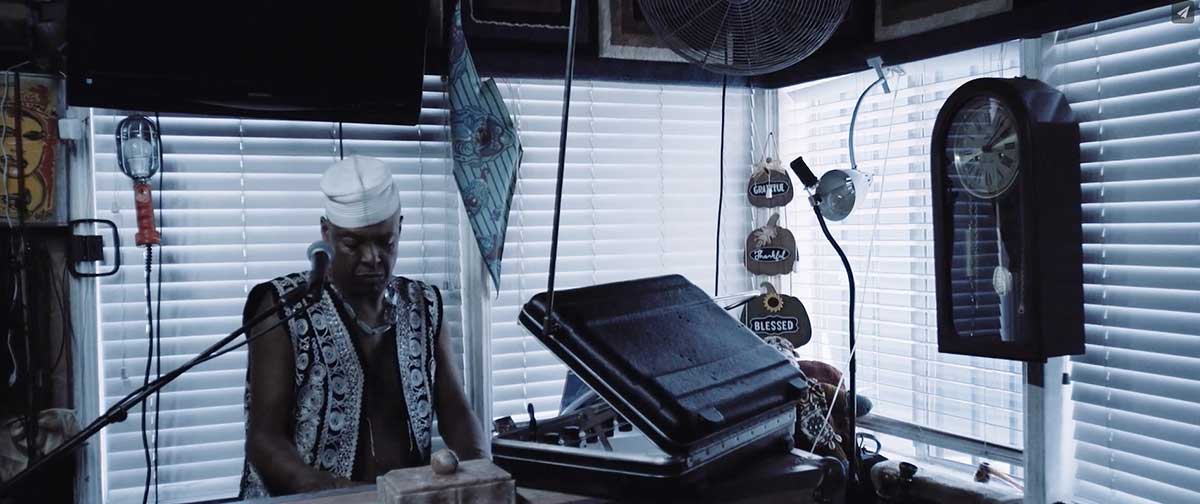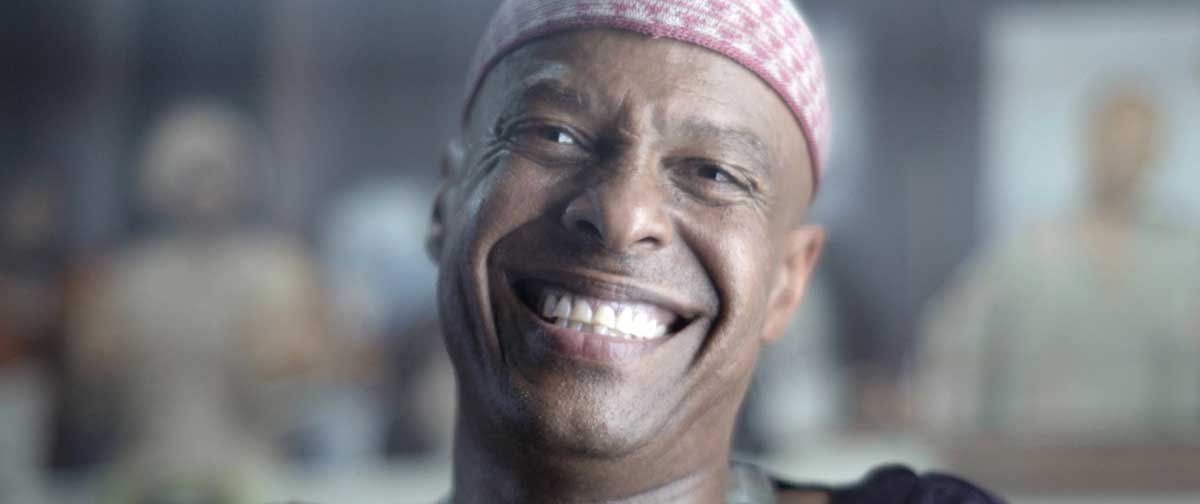Fri Mar 4, 2022 – 5:00 pm | Visit Beloit
NO TICKETS WILL BE SOLD AT THE VENUES
Purchase your ticket either online or at the Box Office
ForeverMoore: The Angelo Project
Directed by Tisa Zito
Documentary Feature
USA | 71 min | 2020
Angelo Moore devotes his life to weaving a legacy; crafting art through spoken word, music, and fashion. Angelo’s acknowledged and accepted certain truths using them as inspiration, making beauty out of darkness, all with a sense of humor and smile that could set the world on fire. The film asks many questions about the legacy and process of an artist. Through one of a kind, childlike wonder, this is Angelo Moore of Fishbone.
Director Statement
I always make films about injustice. And so I had wanted to make a film in Myanmar for a long time – since at least the failed Saffron Revolution of 2008. But the dictatorship made filming there impossible. In 2012, when things were beginning to change, I was invited to show one of my films in Myanmar’s first ever Human Rights Film Festival. I found the experience extraordinary, the people in Myanmar wonderful – characterized above all by a curiosity and thirst to learn – and so I wanted to return. The festival invited my wife and I to come back and teach new film students how to make their first human rights short films. We accepted, and returned with the idea of also making a film of our own.
While reading about Myanmar before we came, my wife observed that many books remarked about the importance of poetry in Myanmar, and how widespread the craft was.
In Myanmar, when we started exploring the subject, this was confirmed: indeed, poetry is really in the lifeblood of all Burmese. In fact, the difficulty became that there are too many poets in the country – for almost everyone writes poetry, and many, many consider themselves to be poets. Hence the Burmese joke, that in Myanmar, “there are more poets than stray dogs.”
But how to turn poetry into a film? This question was answered when I met Maung Aung Pwint – Myanmar’s most famous dissident poet, who had spent many years in prison for his activism. He was recommended to us by one of the founders of the Human Rights Film Festival – with the remark that I would like him very much when I’d meet him. This was an understatement. I was invited to his home, and as soon as I met him, I felt as if I had met a long lost friend. His deep penetrating gaze, his laughing eyes despite the sadness that often envelops him as an impenetrable fog. I knew immediately that I had found the main character for my film – something that usually in documentary filmmaking takes much longer, a process of trial and error, filming and watching footage, questioning my intuition, trying different things. Not this time.
Of course, we were blessed that Maung Aung Pwint opened up his heart and his household to us unconditionally, allowing us to film whenever and whatever we wished. Because of this we were able to film the heartrending intimate reunion of his family with his son that he had not seen for almost twenty years.
One of the first things Maung Aung Pwint told me was “let’s make a long poem together.” This was his invitation to me as a filmmaker. And a challenge.
We have tried to do honor to his request by making a film that itself in structure and form is like a poem – a film that is as beautiful as the words to which it is dedicated.
To do this we chose not just to tell only the story of Maung Aung Pwint – though we could have chosen to do so, and the result would have undoubtedly been equally beautiful. But because the country is so rich, and because its time of transition is so important, we wanted to make a film that would give more of a panoramic view of what the country is undergoing – and as well to show the ubiquity of poetry in it. That is why we chose to structure the film as a storybook: as a collection of cinema verité scenes all somehow linked to poetry, embedded within Maung Aung Pwint’s own story.
And so our film is about many things. It is about poetry. It is about a beautiful country emerging from many years of suffering. But above all, it is about resilience – an inner strength that seems to transform itself into one of the most elusive things for a filmmaker to capture, one that you think is ordinarily invisible, and that is grace. That is the greatest gift that we have been given by Maung Aung Pwint.

 Tisa Zito
Tisa Zito
Director
Tisa was the second of four children raised in Rochester, NY. She attended Hofstra University, Monroe Community College, Maryland Institute of the Arts, and Rochester Institute of Technology. She spent three months at sea living off the land with NOLS in Mexico. Her focus on photojournalism in college quickly changed to making films with a focus in Documentary production. She is the Owner, Videographer, and Editor behind Old Soul Productions which she has dedicated in memory of her brother Brandon. She has worked for KEZI channel 9 news in Eugene Oregon. She is a Digital Film Producer for Dixie University in Southern Utah where she also teaches Film History and the business of film.




